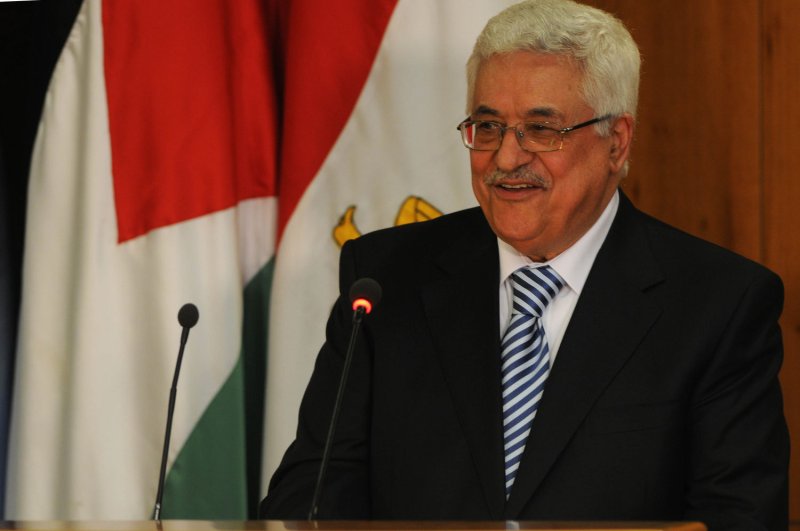1 of 5 | Palestinian President Mahmud Abbas delivers a speech in the Egyptian capital Cairo on May 4, 2011. The rival factions, Fatah and Hamas, signed a reconciliation accord in Cairo after reaching common ground against Israeli occupation and peace efforts. Mashaal said they had a 'common goal; a Palestinian state with full sovereignty on the 1967 borders with Jerusalem as the capital'. Israeli Prime Minister Benjamin Netanyahu claimed that the reconciliation between the factions as a 'blow to peace', but the US declined to make any comment. UPI\ Mohammed Hosam |
License Photo
JERUSALEM, May 5 (UPI) -- A survey found more East Jerusalem residents said they would prefer to keep their Israeli citizenship and live in Israel when Palestinian statehood is declared.
The survey was conducted earlier this year by the Pechter Middle East Polls together with the Council on Foreign Relations.
When asked after a two-state solution is reached would they prefer to become citizens of Palestine with all the rights and privileges of other Palestinian citizens or maintain their Israel citizenship with the same rights as other Israelis, 35 percent of East Jerusalem residents said they would keep Israeli citizenship and 30 percent said they would take Palestinian citizenship, the survey found.
When asked if they would move to a different home inside Israel if their neighborhood became part of Palestine, 40 percent said they would likely move to Israel and 27 percent said they would move to Palestine if their neighborhood remains part of Israel.
When asked the likelihood of a new intifada erupting in East Jerusalem if peace negotiations between Israel and the Palestinians collapse, 27 percent said it was "very likely," 37 percent said somewhat likely, 20 percent said such a scenario was "not very likely" and 14 percent said "very unlikely."
Asked if resistance groups would continue the armed struggle even if a peace agreement is signed between Israel and the Palestinians to end the conflict and Jerusalem is divided, 41 percent said yes, 31 percent said no and 28 percent said they did not know what would happen.
The survey took place in 19 East Jerusalem neighborhoods and 1,039 Palestinians participated. The error of margin was 3 percentage points.















